The Hafenturm’s urban position as a hub for a new part of the city is registered in outdoor space, formulated and strengthened. The iconic reference to the district as a kind of landmark is underlined by means of a public green area and a park.
Linz Hafenturm
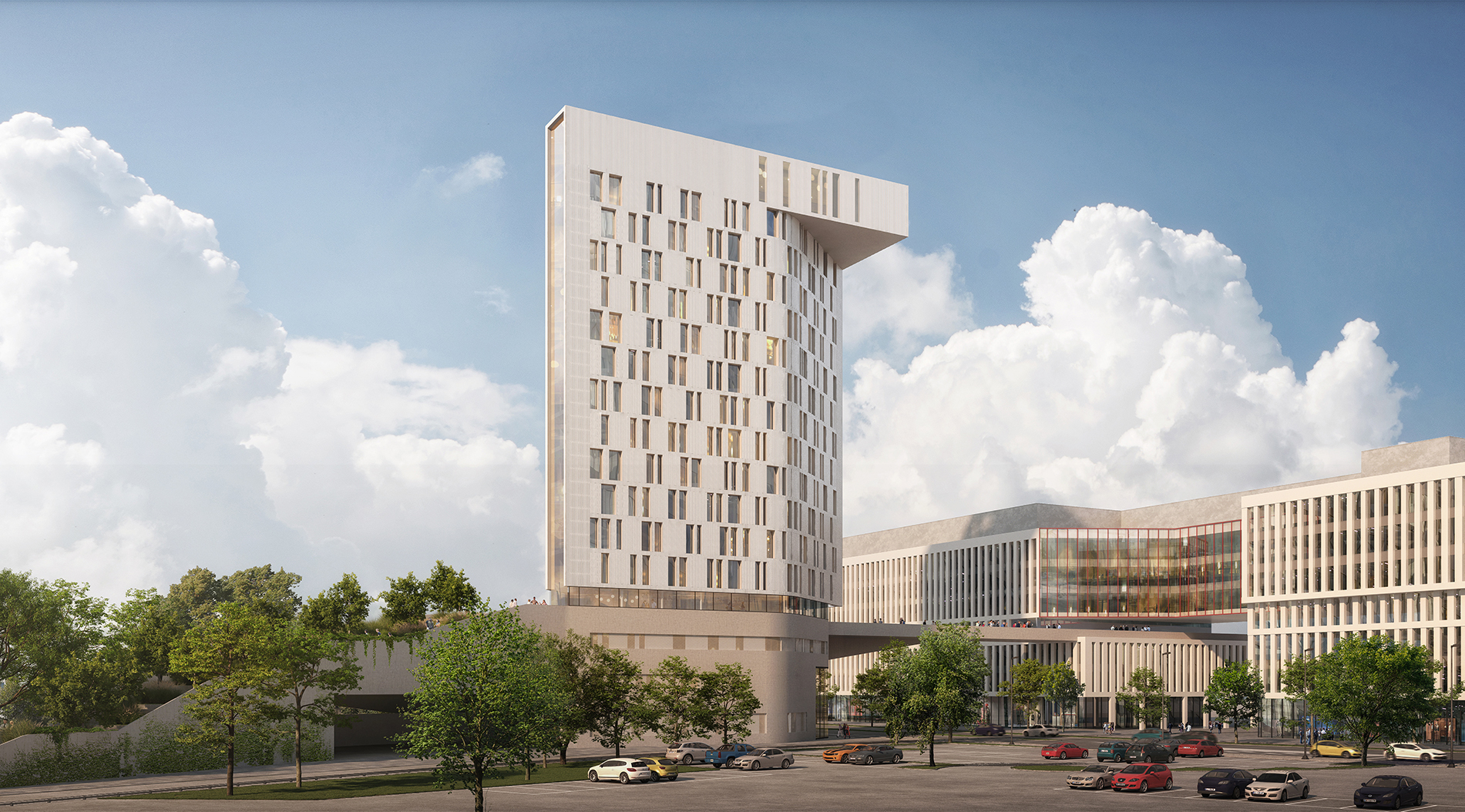
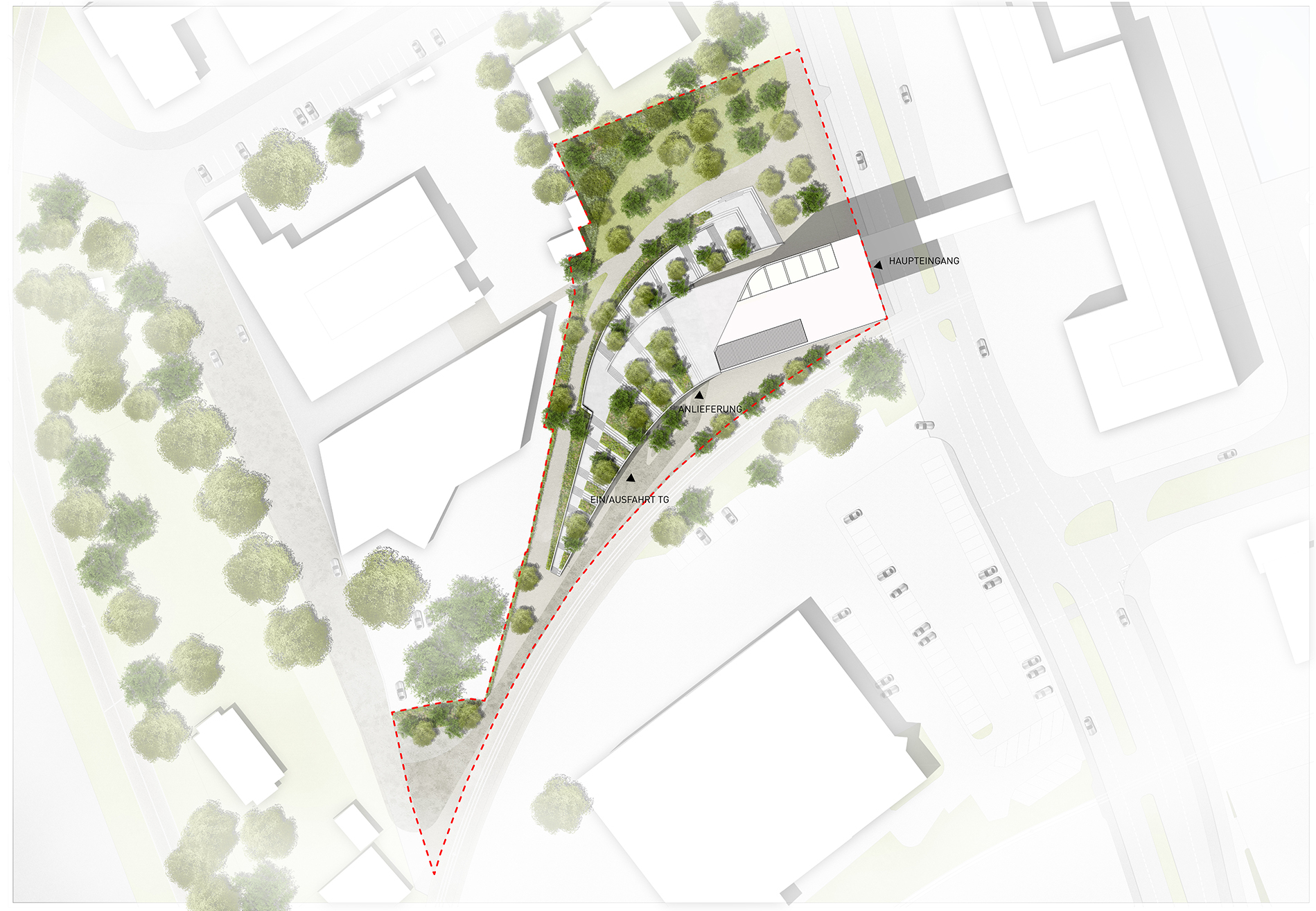
Year
2020
Venue
Linz
State
In planning
Category
Mixed
Size
9.166 m²
Year |
Venue |
State |
Category |
Size |
|---|---|---|---|---|
2020 |
Linz |
In planning |
Mixed |
9.166 m² |
Year
2020
Venue
Linz
State
In planning
Category
Mixed
Size
9.166 m²
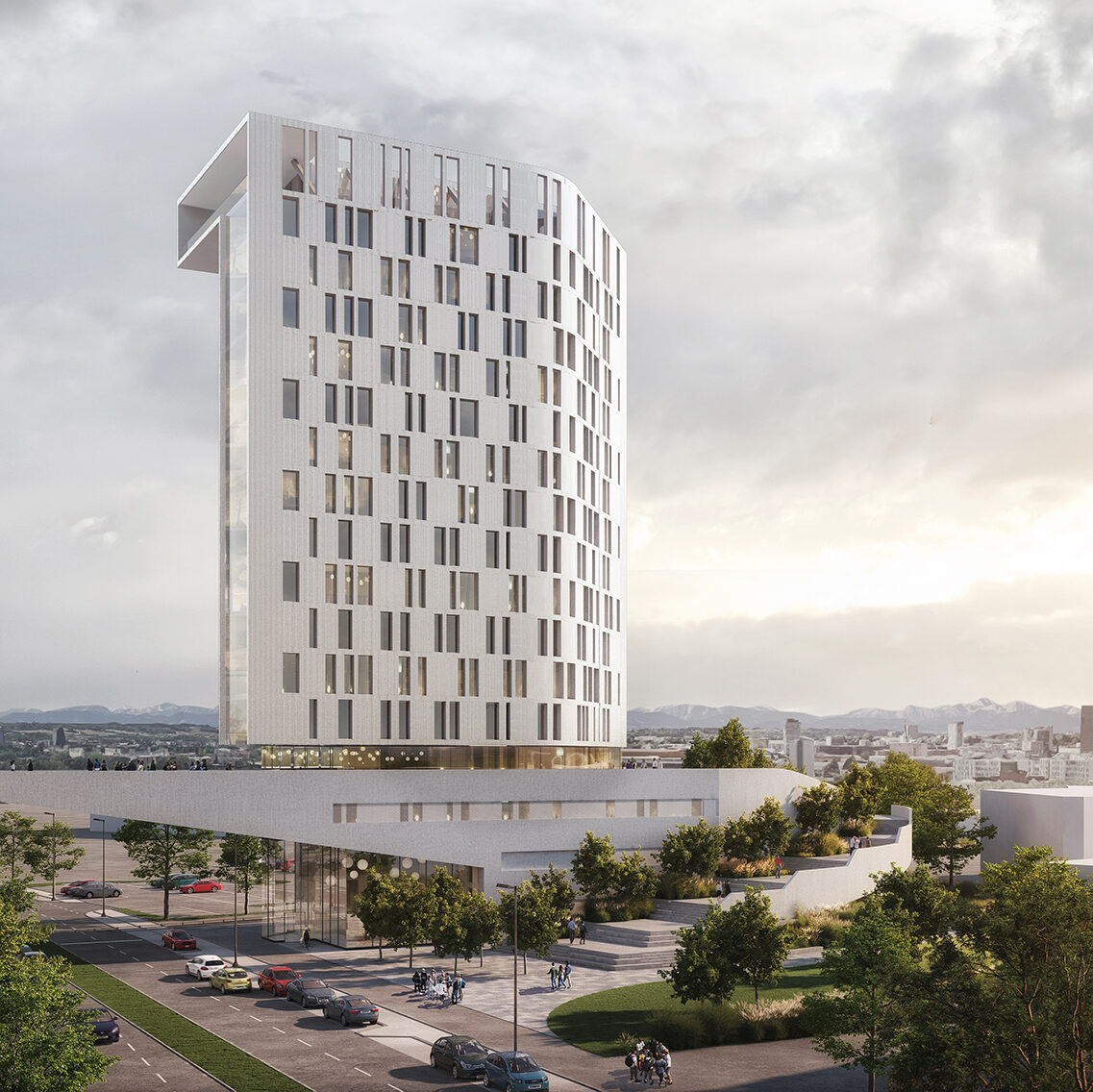
"A new landmark for the port in Linz and an important step for the port development."
The Hafenturm (lit. Harbour Tower) will represent the start and a signal for the planned “Neuland” project and will also function as an important connecting element. A widely visible landmark, it will stand in an area of industrial buildings and with its sixty metres will be moderately high. To ensure that the tower appears as slender as possible and to emphasise its verticality, for the standard hotel floors a floor plan was developed in which the wings containing the bedrooms nestle around the internal high rise core so that they connect at the respective opposite ends of the buildings to form an extremely slender building front.
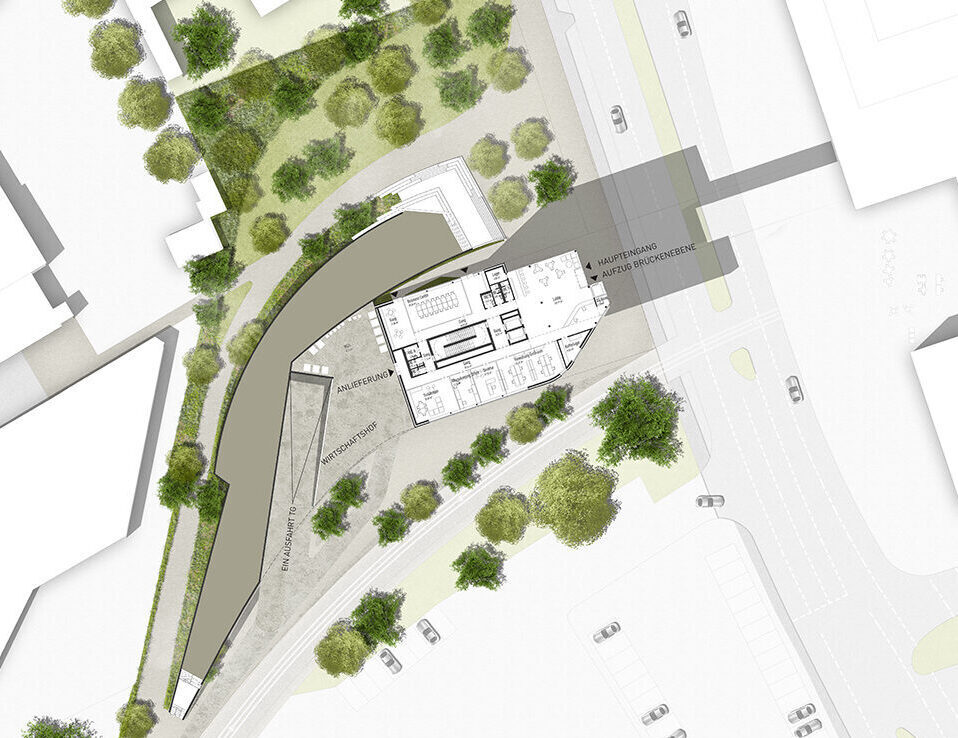
The connection to the bridge is made by means of generous terracing that forms a planted park area that rises continuously and brings users from the industrial area. A combination of flights of steps and seating steps creates clear routes and strengthens the appeal of the individual areas as places to spend time in. At the base the seating steps are continued around the corner into the park, where they form a central area with a view of the greenery.
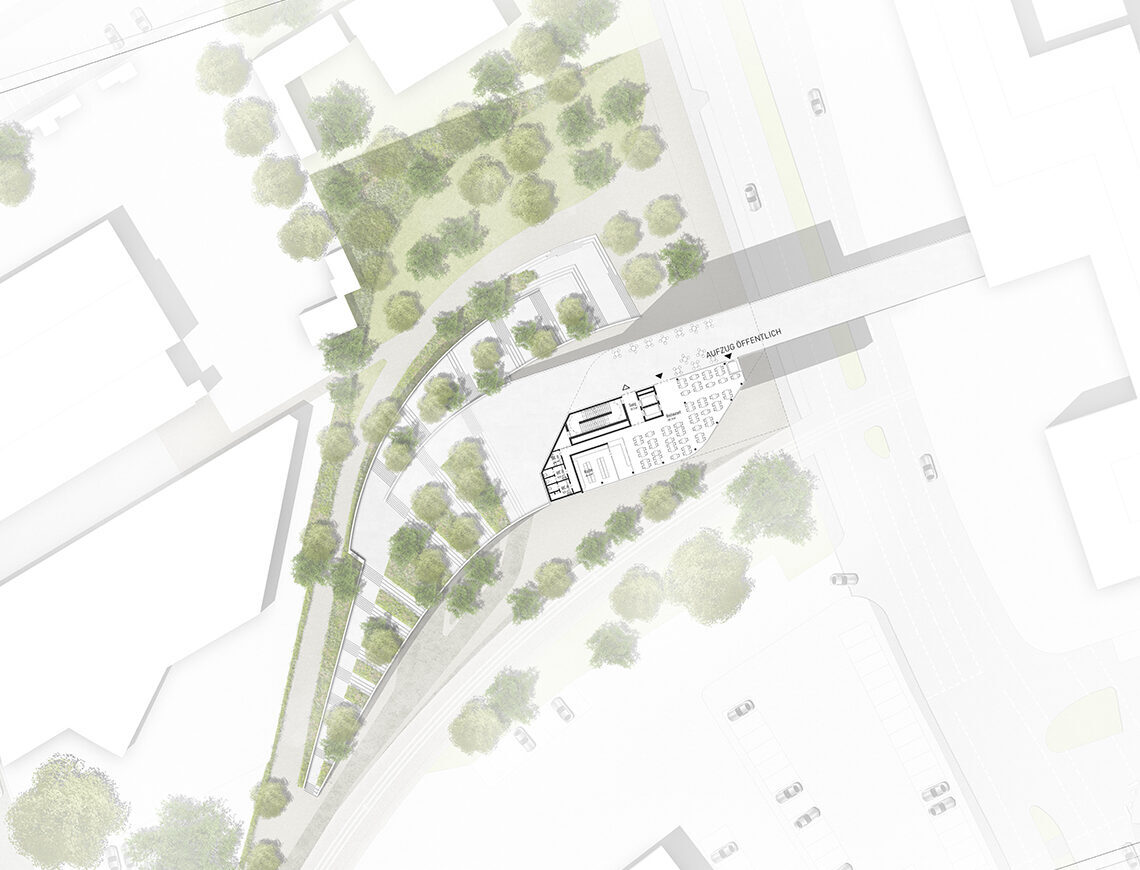
These narrow fronts are completely glazed and, symbolically, they are oriented towards the motorway and the old town and, on the opposite side, to the harbour, while the wide fronts have a deliberately limited number of windows.
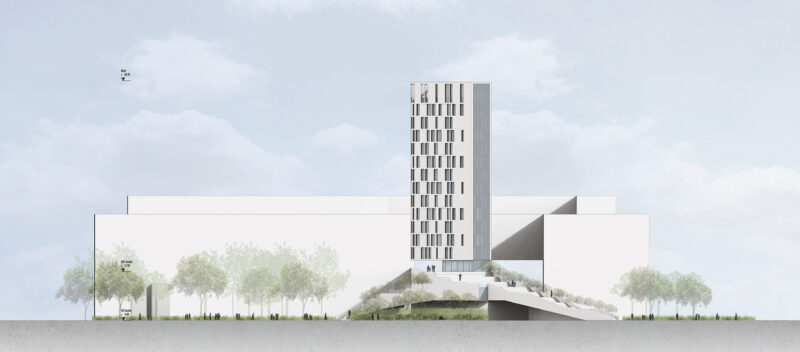
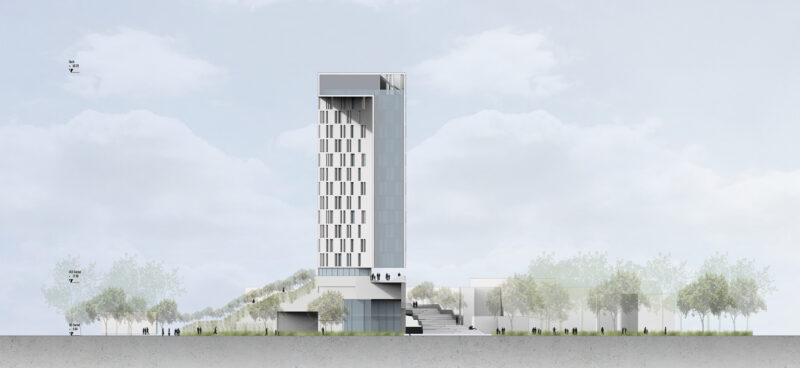
Rooftop Bar
The uppermost floor houses the Rooftop Bar with its generous terraces and is designed so that it opens towards the port along the entire width of the tower’s footprint. This enables a magnificent view across the accessible roofscape of the Neuland and the harbour area to be offered. At the same time the impression is given that the building itself is a gigantic periscope that wants to look across the “Hafenportal” at what is going on!
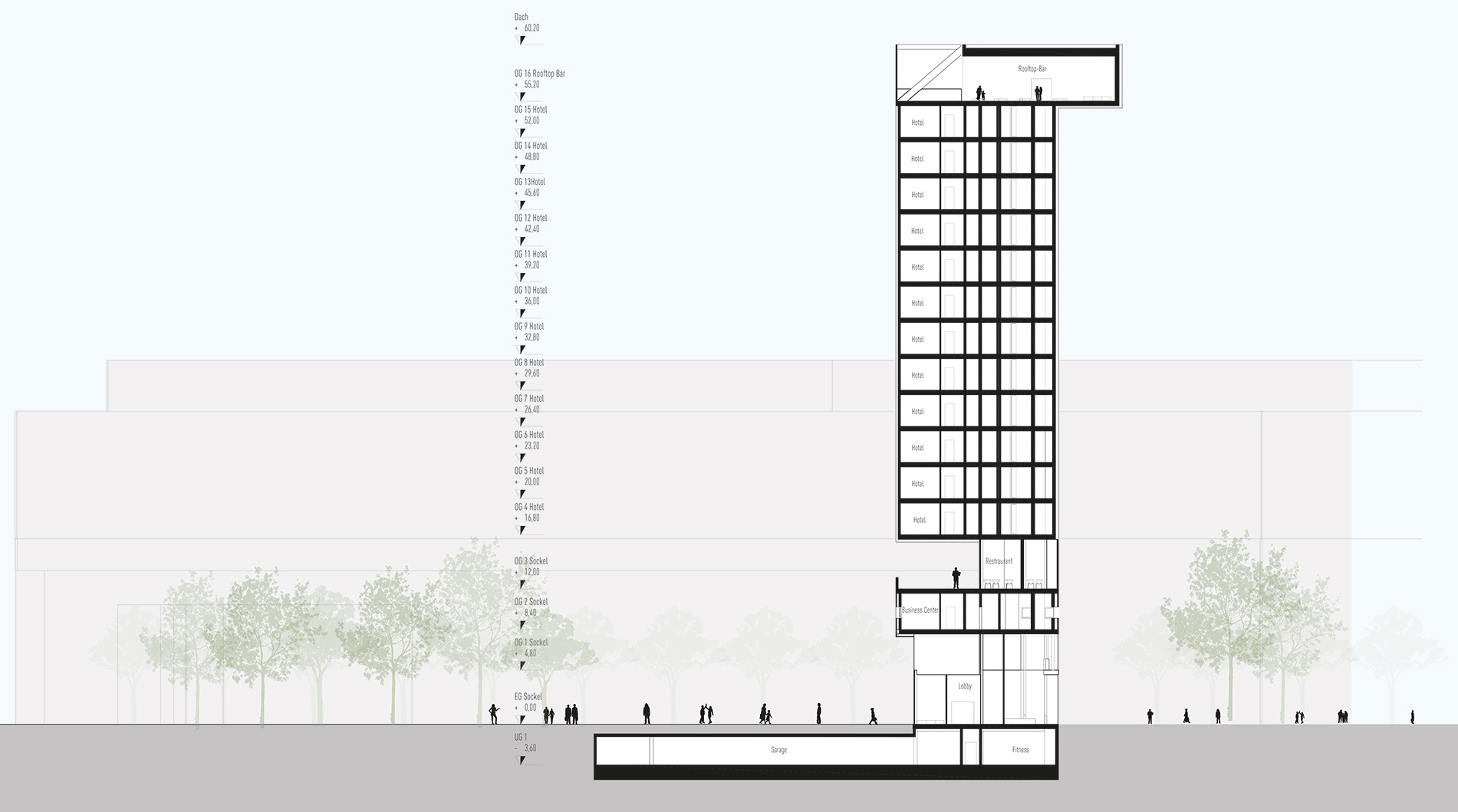
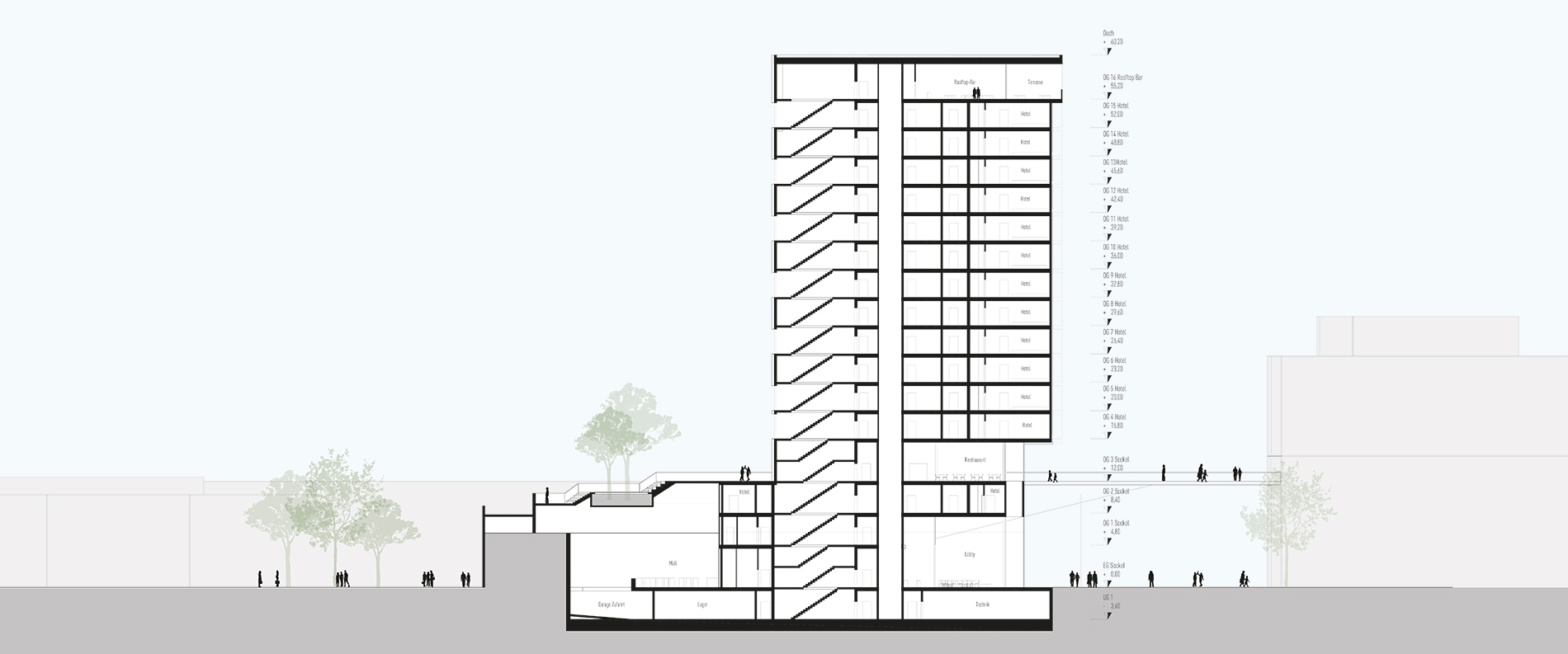
The most interesting asset of the tower is the required public pedestrian connection to the “Hafenportal” at a height of 12 metres and then to the roofscape of the Neuland.
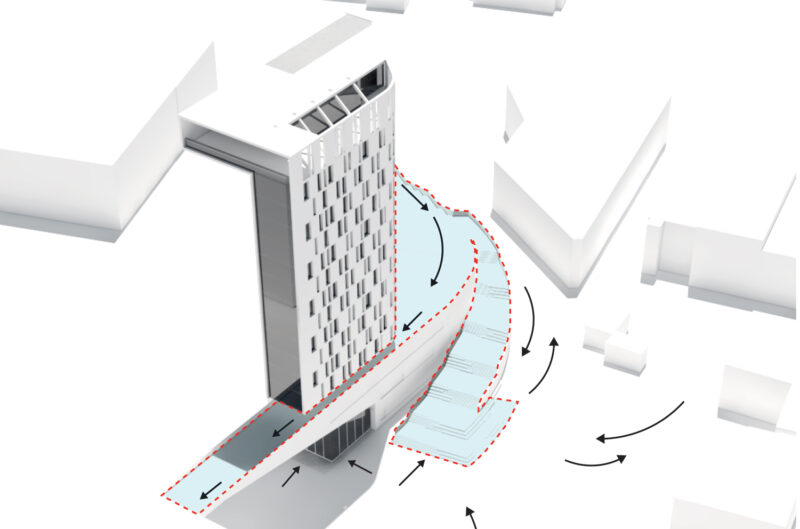
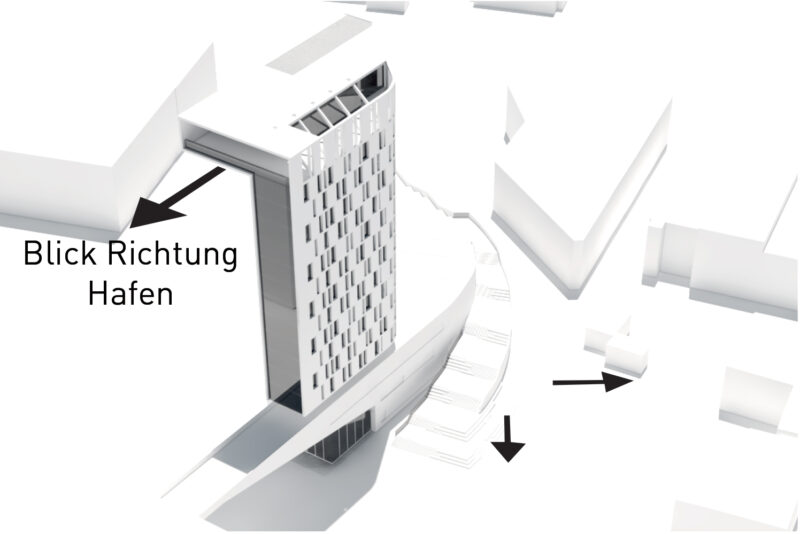
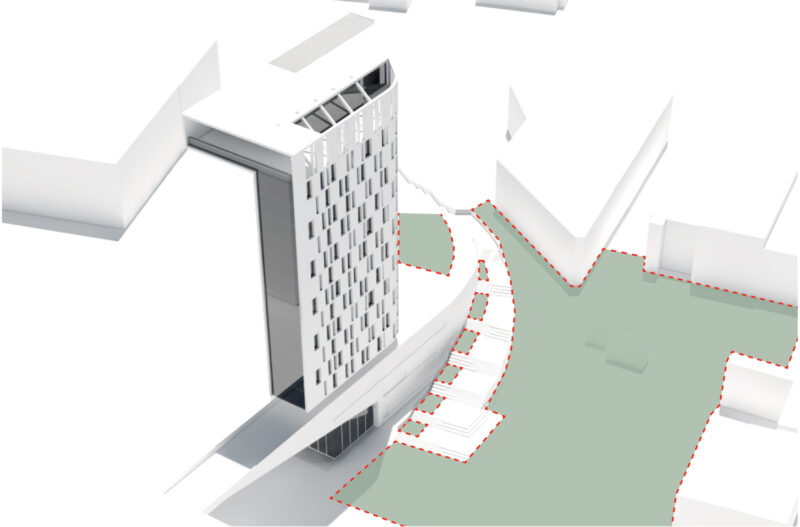
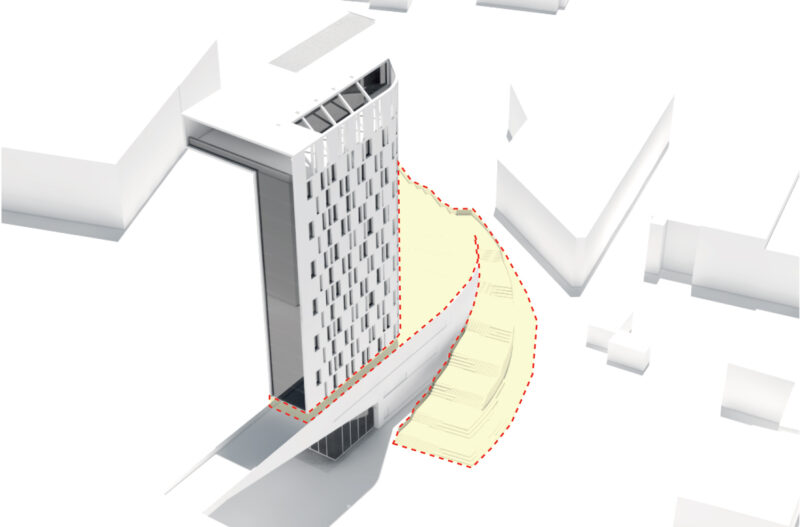
In response to this challenge we developed a “plinth”, above which the hotel tower appears to hover. The plinth is sculpturally shaped and landscaped and offers passers-by coming from the events centre Posthof and from the Hafenzeile a terraced and planted ascent that leads, covered, through the large horizontal joint of the building, past the breakfast restaurant, to the bridge. In the same way as the plinth rises from the southwest,
the bridge seems to cantilever far to the north-east producing a visual counterbalance for the figure as a whole. The plinth houses the two-storey hotel lobby, the business centre on two levels, a first bedroom level and the service and ancillary rooms. The road for truck deliveries and the access to the underground garage run beneath an external staircase that protects them from the elements and are approached from Posthofstraße from the south.
Architects
Pichler & Traupmann Architects
Design team
Bartosz Lewandowski (Team leader)
Andreas Schermann
Mira Al-Suradi
Client
Linz AG
Fleissner + Partner Ges.m.b.H. Graz
Landscape architecture
Lindle+Bukor Atelier für Landschaft, Vienna
Hard facts
Start of planning: 2020
Usable floor area: 7.836 m²
Gross floor area: 9.166 m²
Function: Hotel with garage (and
public pedestrian connection)
Scope: Invited, anonymous expert opinion procedure
Renderings
Patricia Bagienski, Vienna
Award
1st Prize